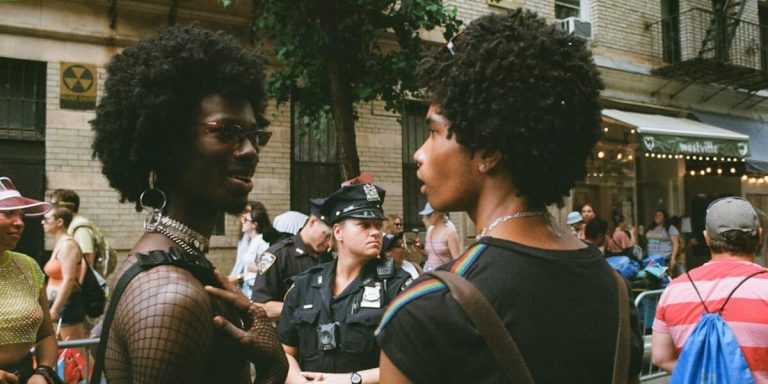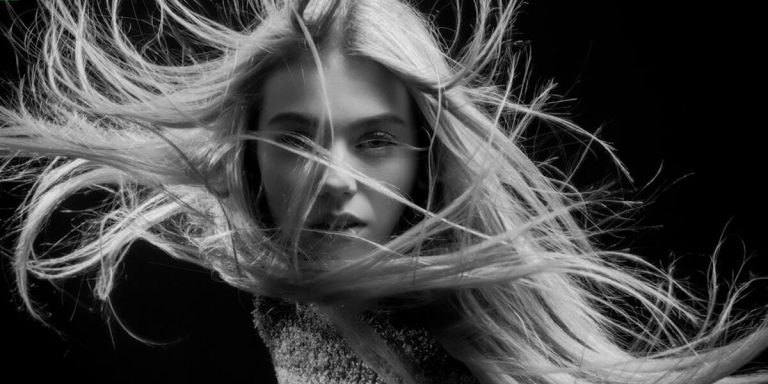Can Dehydration Cause Hair Loss? Unveiling the Truth.
The question often arises, “can dehydration cause hair loss?” While it may not seem immediately apparent, our body’s hydration levels significantly impact various aspects of our health including the well-being and growth of our tresses. It is essential to understand that water forms almost 25% of each strand’s weight which solidifies its significance in maintaining healthy hair.
Dehydration leads to a parched body system where vital organs are prioritized over non-essential ones like the skin or scalp. This process leaves your scalp neglected on receiving optimum nourishment leading to weaker follicles and eventually causing potential hair fall out occurrence. As we peel back layers on this subject matter further ahead in this piece, there will be an elucidation upon how critical adequate hydration can be for preventing accelerated shedding cycles.
Did you know?
Did you know? Severe dehydration can hinder your body’s ability to transport nutrients to the hair follicles, potentially leading to shedding and thinning hair. It underscores how essential proper hydration is for healthy hair growth!
Understanding the Connection Between Dehydration and Hair Health
Safeguarding the health of your hair involves a holistic approach, where staying adequately hydrated plays an integral role. Our bodies are composed primarily of water and this life-giving substance is vital for all organ functions including that of our skin and scalp. When we consider dehydration in context to “hair loss causes”, it might come across as surprising but indeed, there’s a direct link.
Dehydration often leads to dryness – which makes its presence known from head to toe. In the case of our scalps, lackadaisical hydration habits can cause them to become excessively dry or irritated; conditions that eventually lead up to dandruff occurrences or worse still hair fall issues – both common culprits behind subpar hair health.
In essence, maintaining optimal body moisture levels serves dual purposes: A healthy quota keeps our bodily processes running smoothly while ensuring adequate nourishment reaches each strand at their roots thus preventing premature breakage due tugging / combing forces etc., thereby minimizing unnecessary thinning episodes over time.
If you experience excessive shedding despite maintaining good personal care routines, including regular water intake, consider potential underlying medical conditions. Understanding how dehydration differently affects hair and skin helps in adopting preventive measures. With 2023 raising awareness about the link between hydration and wellness, it’s crucial to take notice.
Investigating How Lack of Hydration Affects Scalp Condition
Many of us are aware that our bodies need water to function properly. But did you know, this includes the health and vitality of your hair? In fact, a lack of hydration can directly impact hair growth and may even lead to conditions like dry scalp or dandruff which often result in noticeable thinning or loss.
Primarily, dehydration affects the body’s ability to nourish and regenerate cells including those vital for hair production. Hair follicles rely on an adequate intake of nutrients from blood circulation; if these aren’t available because we’re dehydrated, it could impair new strand development leading to reduced thickness over time.
The Science Behind Water Intake and Hair Follicle Functioning
Water is a vital element that our bodies need to function properly. Surprisingly, hydration plays an essential role in maintaining hair health and may be the reason behind your persistent hair fall issues. Let’s delve into the science behind water intake and how it affects the functioning of our precious tresses.
The human body consists of about 60% water which carries out various functions including nutrient distribution, temperature regulation, metabolism functioning and much more. Each one of these processes directly or indirectly influences our scalp’s health, thereby affecting hair growth dynamics as well.
Millions of follicles on our scalps initiate the life cycle of each hair strand. This cycle comprises the growing phase (anagen), resting phase (telogen), and shedding off naturally (catagen). Proper nutritional supply for these phases depends heavily on moisture, generating healthy new strands. Dehydration can lead to premature transitions between stages, resulting in excessive hair loss over time if not promptly addressed.
Exploring Common Triggers for Hair Thinning and Loss
Understanding the factors contributing to hair thinning and loss is complex, largely because it’s a multifaceted issue. Various triggers can lead to such conditions, ranging from genetic predisposition to lifestyle choices. Among these potential causes lies an often-overlooked trigger—dehydration.
Dehydration is more than just feeling thirsty; it has far-reaching effects on various aspects of our health, including potentially triggering hair thinning and loss. Hair follicles are heavily dependent on adequate hydration for their normal functioning. They require water not only for structural support but also as a medium by which essential nutrients are transported.
In 2023 where wellness stands at the forefront of societal concern, drawing attention towards something as basic yet pivotal as staying hydrated becomes even more critical. The connection between dehydration and hair loss might seem tenuous initially; however, diving deeper into understanding physiological processes explains how inadequate fluid intake could pave way towards this undesired path.
If you’re considering whether your frequent episodes of forgetfulness around hydrating yourself could be causing that alarming clump in your shower drain or those stray strands on your pillowcase – let’s address if there indeed exists any relationship here? Yes! It appears simple daily habits like proper hydration can significantly influence overall scalp health and subsequently result in better supported healthy-looking locks too.
Examining Nutritional Deficiencies That Lead to Weakened Hair Growth
Hair growth and overall health are significantly impacted by our nutritional intake. A well-rounded diet rich in essential vitamins, minerals, and proteins is key for robust hair follicles that can resist breakage.
A more intricate answer would involve the discussion about how chronic dehydration impacts your body’s efficiency in nutrient distribution including those vital ones needed for healthy locks like Vitamin E or Iron. When you’re dehydrated often, nutrients meant to nourish your scalp might be diverted instead towards other critical bodily functions resulting into weaker hair roots leading eventually into noticeable shedding.
Another nutritional deficiency linked with reduced hair strength pertains to lack of protein intake which forms the building block structure of every single one of our hairs’ cells.
Adults should aim to consume an average of 50g of protein per day from sources including:
- Lean meats
- Plant-based alternatives like tofu
Not consuming enough protein can lead to a shortage of materials for creating new hair strands. As a result, hair may thin over time and break easily due to damage to existing fibers. This breakdown process, known as catabolism, takes place within the tissue layers of the hair. Without regular replenishment of proper amounts, the structural integrity is compromised, making the hair vulnerable to potential loss during daily activities such as brushing, washing, and styling.
Hormonal Imbalances and Stress: Their Role in Compromising Hair Vitality
Hormonal imbalances and stress are formidable allies in the battle against hair vitality. They operate discreetly but can lead to drastic consequences, such as thinning hair or even outright loss.
Let’s delve into how hormonal upheaval plays a part. The human body is an intricate network of hormones, all functioning together to regulate our physical condition and emotional responses. Simply put, they keep us ticking like well-oiled machines.
But when there’s turbulence in this system – perhaps due to health conditions or age-related changes – your crowning glory may pay the price.
For instance, women undergoing menopause often see changes in their locks’ texture and volume because estrogen levels decline during this phase leading to dryer and thinner hairs that eventually fall off more than usual.
Similarly for men; higher levels of dihydrotestosterone (DHT), which comes from testosterone conversions by enzymes known as 5-alpha reductases—are held responsible for male pattern baldness.
Now pivot towards stress—an intangible yet potent disruptor—emotional disturbances have often been linked with sporadic episodes of hair loss scientifically called Telogen effluvium . Stressful situations such as sudden trauma or chronic anxiety push a significant amount of your actively growing follicles into a resting phase faster than normal—the result? A noticeable shed within just two months after the stressing event occurred!
Preventative Measures to Combat Dehydration-Induced Hair Loss
Staying hydrated is crucial for overall health, including that of your scalp and hair follicles. In fact, dehydration can indeed lead to hair loss. When we do not consume enough water, the body responds by conserving whatever little it has left for essential functions – unfortunately, supporting healthy hair growth isn’t one of them.
Dehydration-induced stress within the body causes a disruption in its standard functioning and can affect many areas such as skin health – leading to dryness; likewise also impacts our tresses negatively making them brittle or prone to falling out more readily. To maintain adequate hydration levels which are key in supporting strong locks while preventing any negative repercussions due to insufficient intake there’s nothing better than good old-fashioned H2O!
The first step towards combating this issue is drinking at least eight glasses of water every day (the recommended daily average). However, don’t forget about hydrating from outside! A regular routine with moisturizing shampoos and conditioners designed specifically for dry or damaged strands will aid tremendously.
Since diet plays an integral role too; make sure you’re eating foods with high moisture content like fruits and vegetables alongside lean proteins which give building blocks necessary for new cell growth including those needed on top our heads!
Essential Hydration Tips for Maintaining Strong, Healthy Locks
1. **Stay Hydrated:** Drink at least 2-3 liters of water daily depending on your level of activity and body size.Today being 2023, there are plenty smart-infused bottles available which track how much you’ve drunk throughout the day.
2. **Eat Water-Rich Foods**: Include fruits like cucumbers, strawberries or melons in your diet; vegetables like kale spinach can also ward off dehydration effects not just for overall wellbeing but specifically against hair damage too.
3. **Avoid Excessive Caffeine Or Alcohol:** These substances dehydrate us by causing frequent urination thus leading up to potential problems with dryness related thinning out or fallout.
4: **Use Hydrating Hair Products:** Look for shampoos, conditioners enriched with hydrative ingredients (like argan oil) strengthening scalp retaining it’s necessary moisture levels avoiding any long-term impacts from lack thereof!
5: **Limit Use Of Heated Styling Tools** : Reducing heat exposure helps minimize drying caused by these devices; go easy on them especially if already experiencing signs – brittle ends? This might be telling something important about current health status internally!
Integrating a Balanced Diet and Lifestyle for Optimal Scalp Nourishment
Start by incorporating plenty of water and nutrient-rich foods into your daily regimen. Consuming at least eight glasses of water per day ensures that you remain hydrated throughout the day and prevents excessive dryness on the scalp.
Foods rich in proteins such as eggs, lean meats, legumes are vital for maintaining strong strands while vitamins A,E,C found in fruits like oranges, strawberries or vegetables like carrots help promote overall scalp health enhancing follicle growth.
Furthermore don’t neglect including omega-3 fatty acids (from fish or chia seeds) which keeps both skin and scalps nourished & zinc from nuts/seeds aiding against any potential dandruff issues often linked to excess shedding.
Besides dietary changes ensure moderating stress levels through techniques ranging from practicing yoga/meditation regularly improving sleep patterns – all contributing towards reducing dehydration’s impact over time significant improvement seen via lesser incidents concerning losing hairs compared before making this preventive measure incredibly effective combating prevalent issue 2023 onwards.
Conclusion
In sum, the question “can dehydration cause hair loss” has been thoroughly examined and dissected. It’s evident that a lack of adequate hydration can indirectly contribute to thinning tresses by affecting your overall health, including crucial aspects like nutrient absorption and blood circulation. However, it should be remembered that dehydration is just one potential factor in this complex jigsaw puzzle called ‘hair loss’.
So don’t stop here! We have a myriad of insightful articles on our website shedding light on other ogres causing hair fall. Understanding the root causes will always put you a step ahead in drafting an effective battle plan against unwelcome baldness.
Remember – knowledge is power when combating any adverse condition – Hair Loss included!







